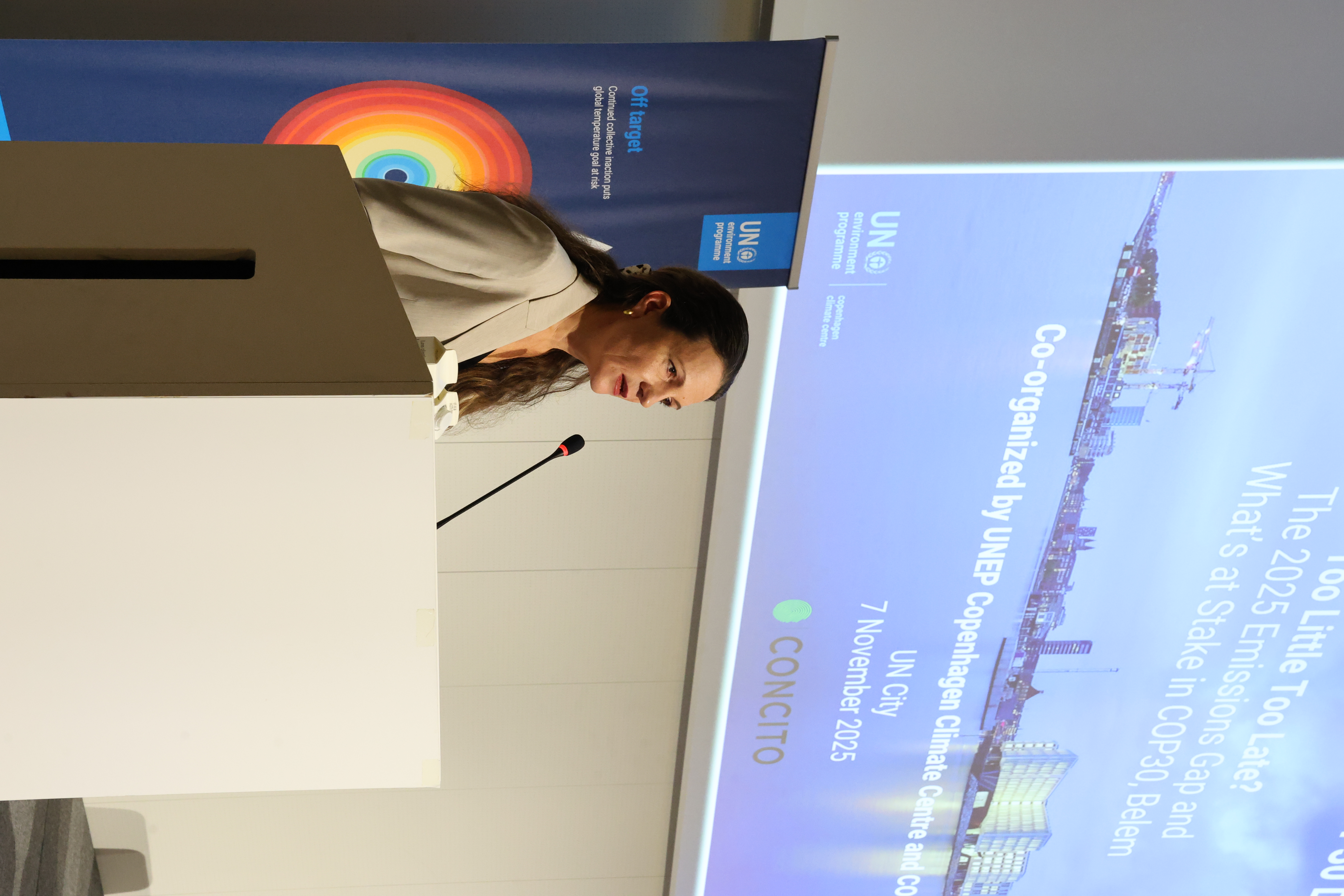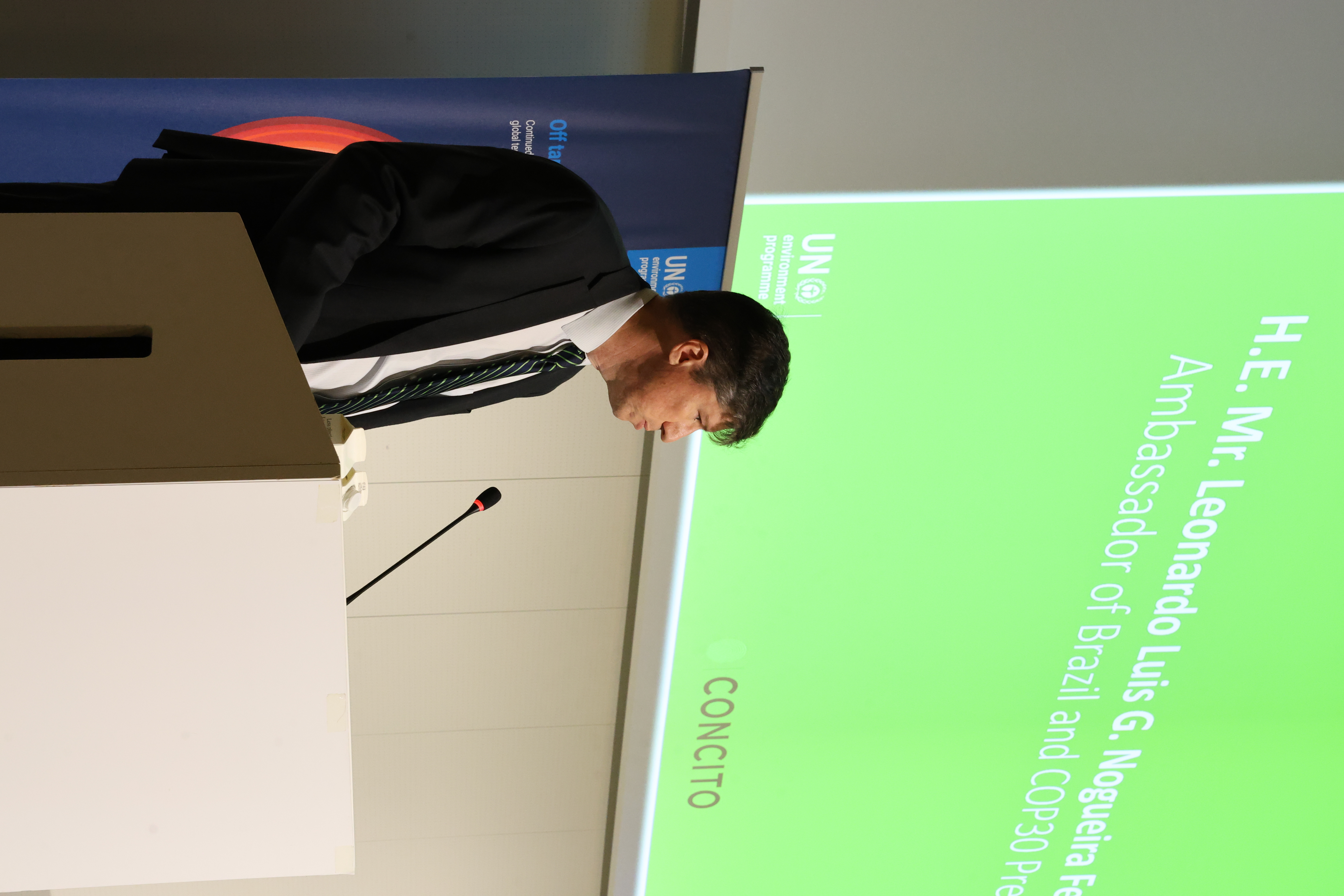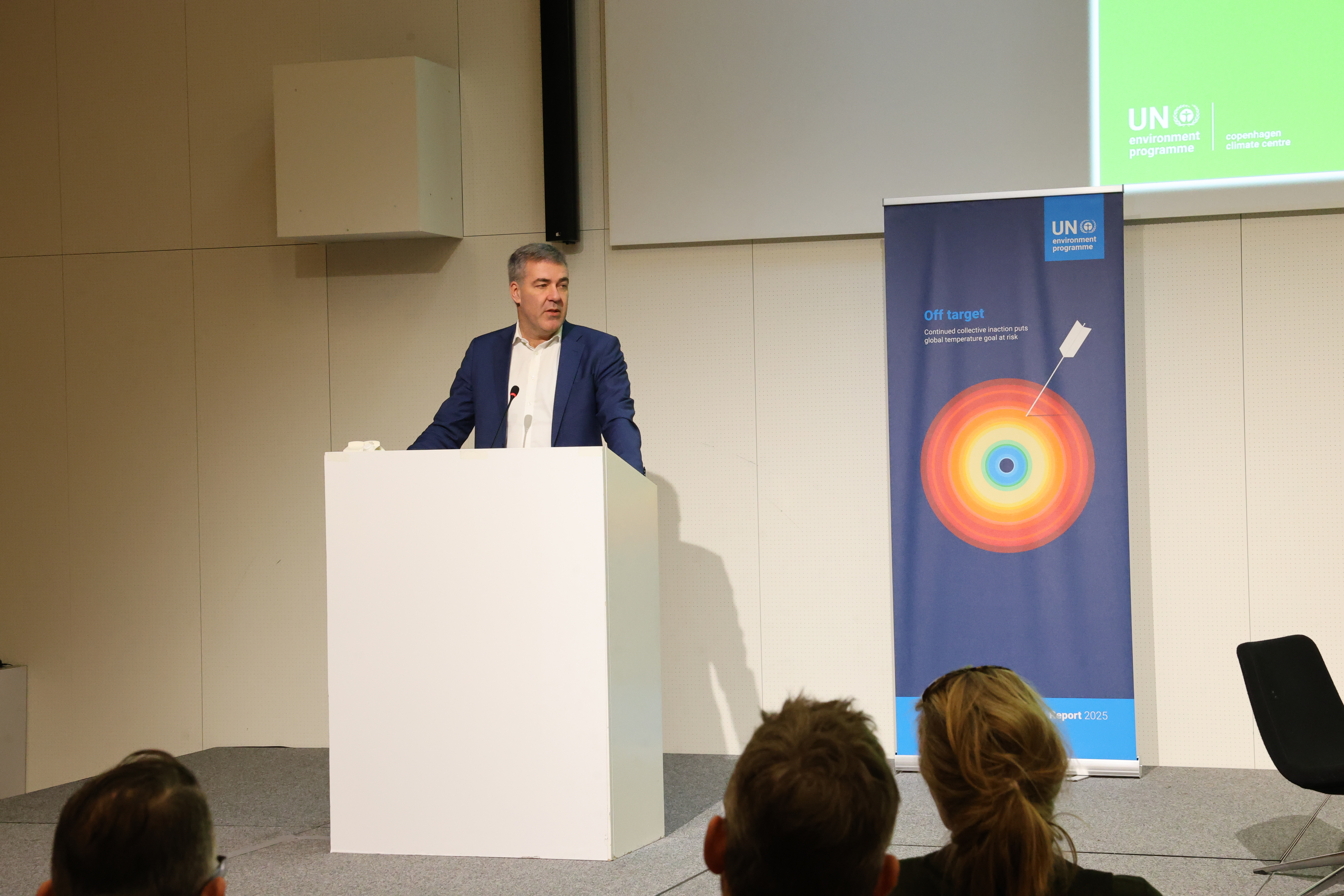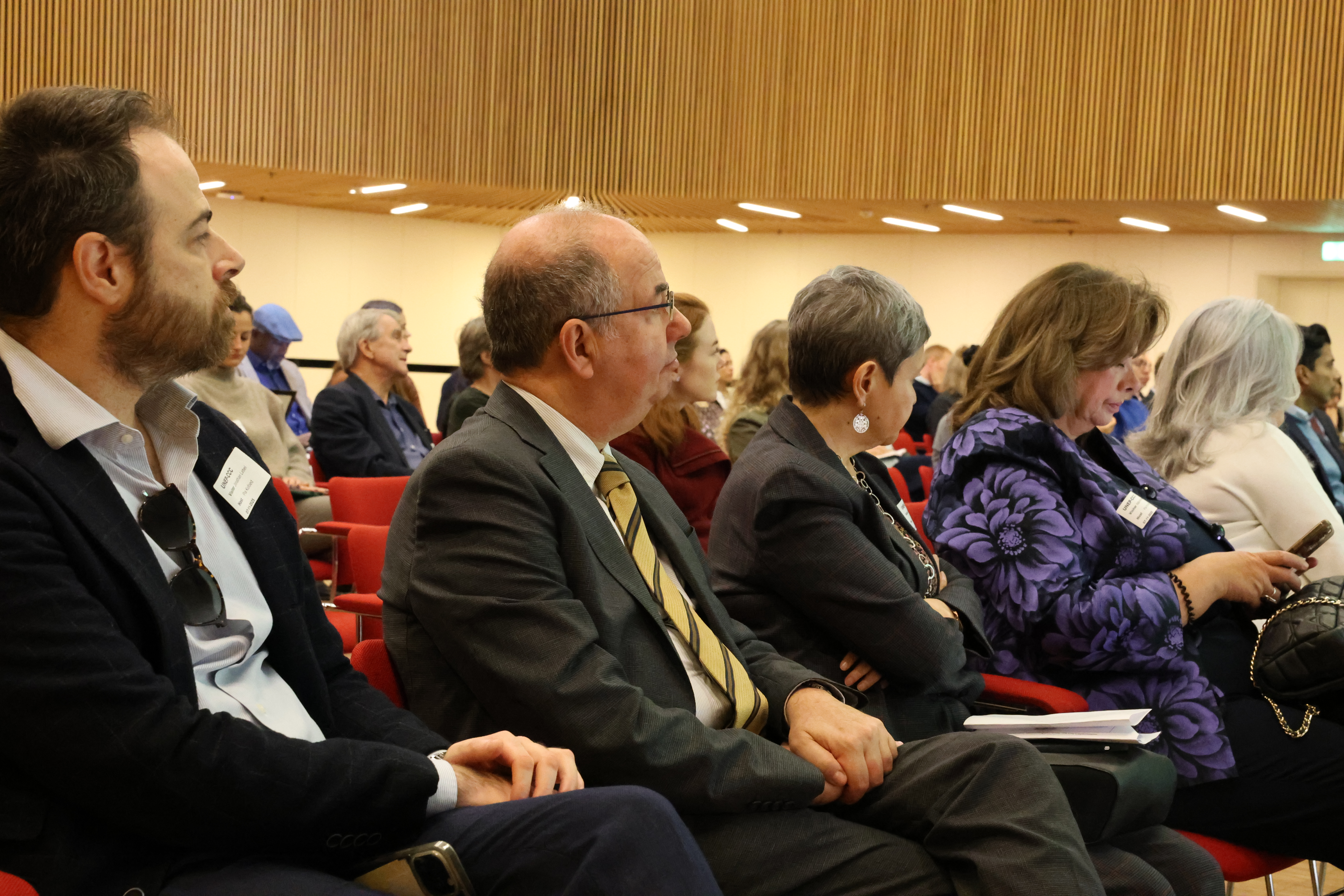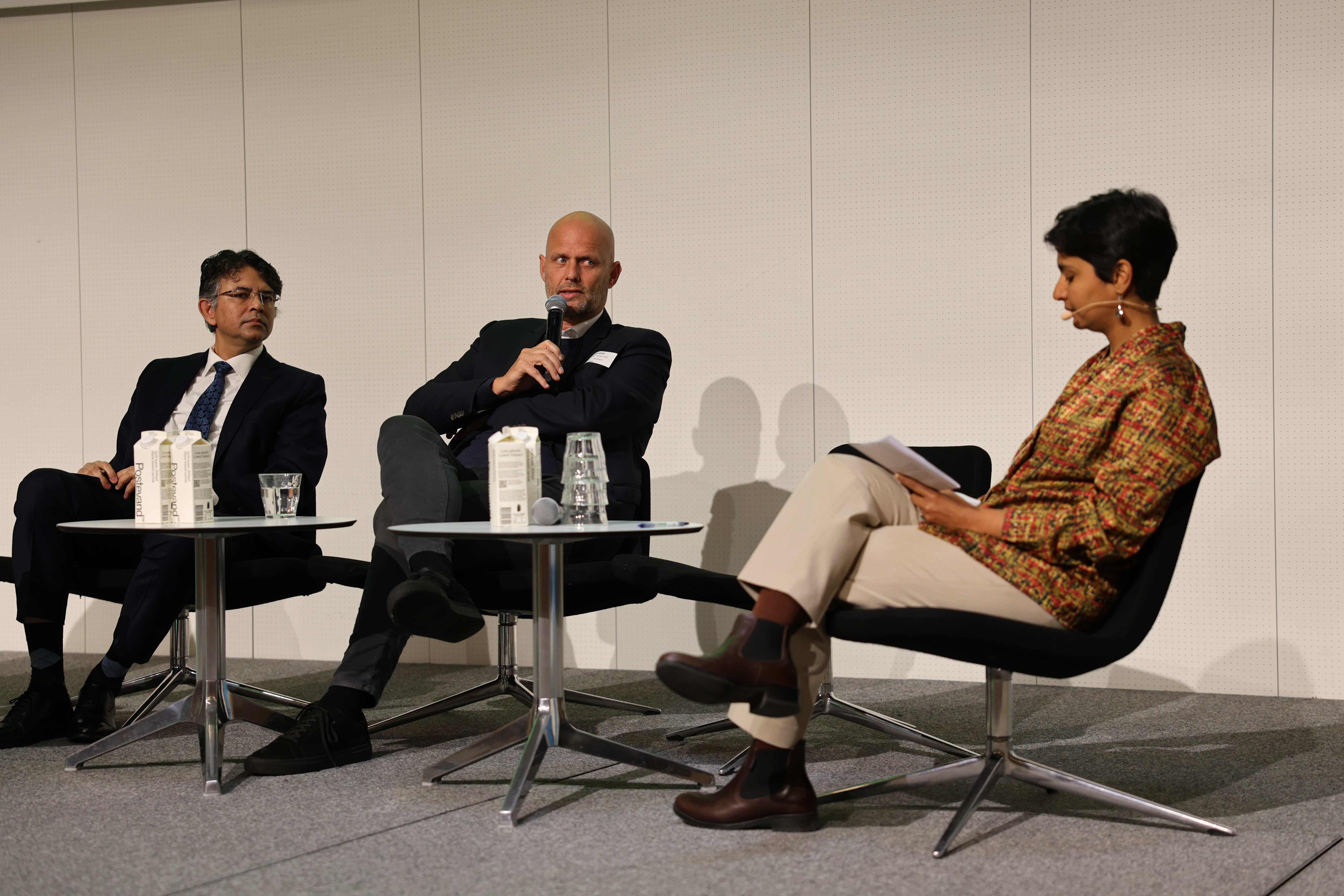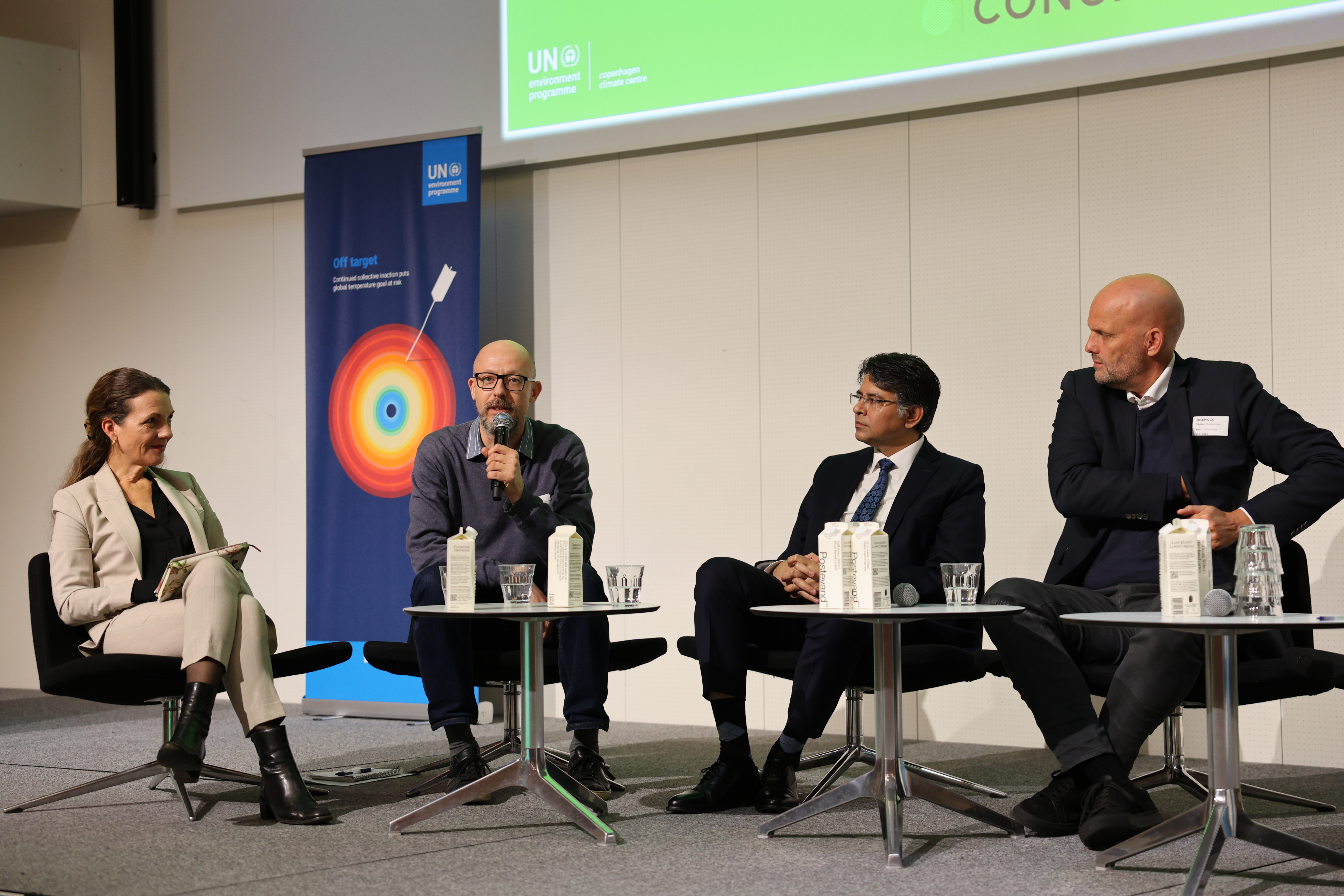A high-level climate dialogue held at UN City Copenhagen brought together international leaders and experts to assess the findings of UNEP’s Emissions Gap Report and discuss the path forward ahead of COP30 in Belém, Brazil.
The event took place on the 7th of November and was organized by the UNEP Copenhagen Climate Centre and Danish green think tank CONCITO.
Anne Olhoff, Director of the UNEP Copenhagen Climate Centre and Chief Scientific Editor of the UNEP Emissions Gap Report, opened the event by presenting the latest climate science from the report. It reveals that emissions have grown with 2.3 per cent from 2023 to 2024, with increases across all gases and sectors. Anne Olhoff emphasized that the carbon budget for limiting warming to 1.5°C is nearly exhausted, and immediate action is essential to avoid surpassing critical thresholds.
Maintaining Momentum and Aligning with Development
Representing the COP30 presidency, Ambassador Leonardo Luis G. Nogueira Fernandes of Brazil stressed the importance of aligning climate ambition with development goals. He emphasized the need for access to finance, technology, and capacity building for countries in the Global South. Brazil’s updated Nationally Determined Contribution (NDC) was presented as a model for integrating climate and development strategies.
Danish Minister for Climate, Energy and Utilities, Lars Aagaard addressed the political narratives surrounding climate action. He underscored the importance of maintaining momentum and reaffirmed Europe’s responsibility to lead by example. He also expressed his hope that COP30 will end up with results giving people hope for future global climate action.
Delivering more than promises
A panel discussion following the opening remarks featured Ambassador Manish Prabhat of India, Asser Rasmussen Berling from the Danish Ministry of Climate, Energy and Utilities, Christian Ibsen, CEO of CONCITO, and Anne Olhoff. The panel explored the need for innovative climate finance, structural shifts away from fossil fuels, and the role of technology in enabling low-cost, scalable solutions. Ambassador Manish Prabhat emphasized the declining cost of solar energy and the importance of energy efficiency, while Christian Ibsen called for derisking private investments in developing countries and moving beyond project-based approaches.
Asser Rasmussen Berling highlighted the importance of ensuring that the COP negotiation machinery continues to deliver decisions and accelerate finance. He stressed the need for a general decision on how to address the emissions gap, rather than waiting for future NDCs.
Audience questions focused on the role of the private sector, political uncertainty, and the challenges faced by smaller economies. Responses from the panel emphasized the importance of clear policy direction, technology transfer, and development-focused approaches that avoid repeating past mistakes.
The dialogue concluded with a shared understanding that COP30 must deliver more than promises. It must provide a credible, collective response to the emissions gap, reaffirm multilateralism, and restore hope in global climate cooperation.
